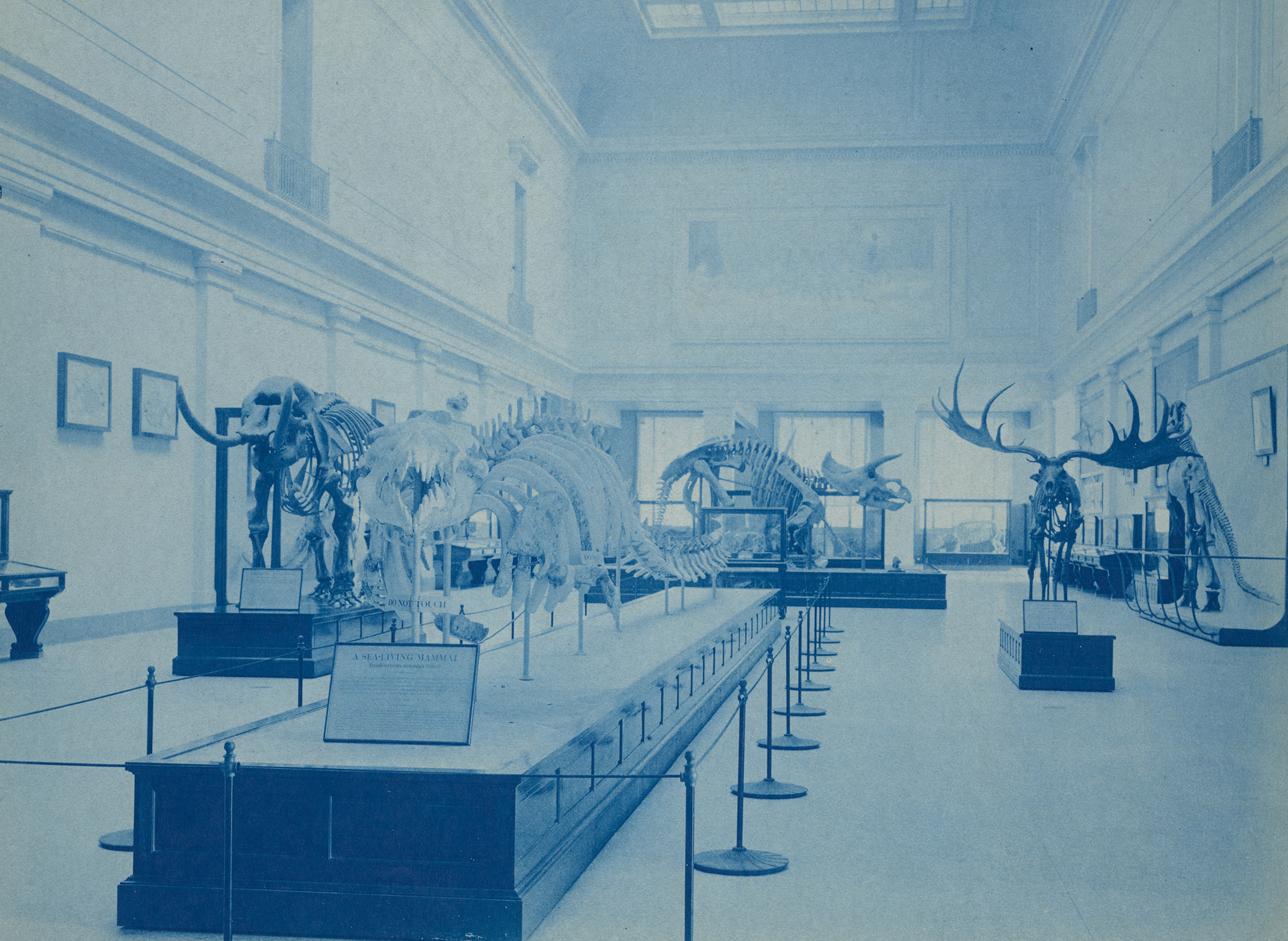
Interior view, paleontology exhibits in the Natural History Building, now known as National Museum of Natural History, with skeletons of mastodon, basilosaurus, triceratops, and Irish elk in view, c. 1910. Smithsonian Libraries and Archives.
• “A ‘highly significant’ and rare carved Roman phallus has been discovered by archaeologists working on finds unearthed during a major road upgrade.” (BBC News)
• On Black America, an 1895 exposition in New York—“a combination slavery cosplay, ethnographic exhibition, Black performance review, and all-around spectacle”—that centered the experience of white spectators while professing to tell the history of Black Americans. (The Public Domain Review)
• “Climate change helped some dinosaurs migrate to Greenland.” (Science News)
• Lessons from the great polio vaccine heist of 1959. (The Conversation)
• “Black History Month has been celebrated in the United States for close to one hundred years. But what is it, exactly, and how did it begin?” (New York Times)
• Was J. Ranji Smile the first celebrity chef or a crook? “Fawning over male chefs, and the ache to anoint them celebrities, is a very old American pastime. In fact, it’s a practice that predates the advent of food television, stretching back over a century. Smile actively courted journalists’ attention, using his notoriety to advance both his native land’s cooking and his own name. Members of the press were content with the arrangement, too, for a time.” (Vox)
• “Unearthed figurine suggests ancient Britons favored mullets.” (The Guardian)
• “Now Online: A Free Library Devoted to West Africa’s Food Heritage.” (Atlas Obscura)
• This week in obituaries: Lawrence Ferlinghetti, Douglas Turner Ward, Genevieve Young, Catherine Belsey, U-Roy, Judy Wald, Ahmed Zaki Yamani, Arturo Di Modica, Barry Le Va, Dianna Ortiz, Shlomo Hillel, and Gerard Hemsworth.